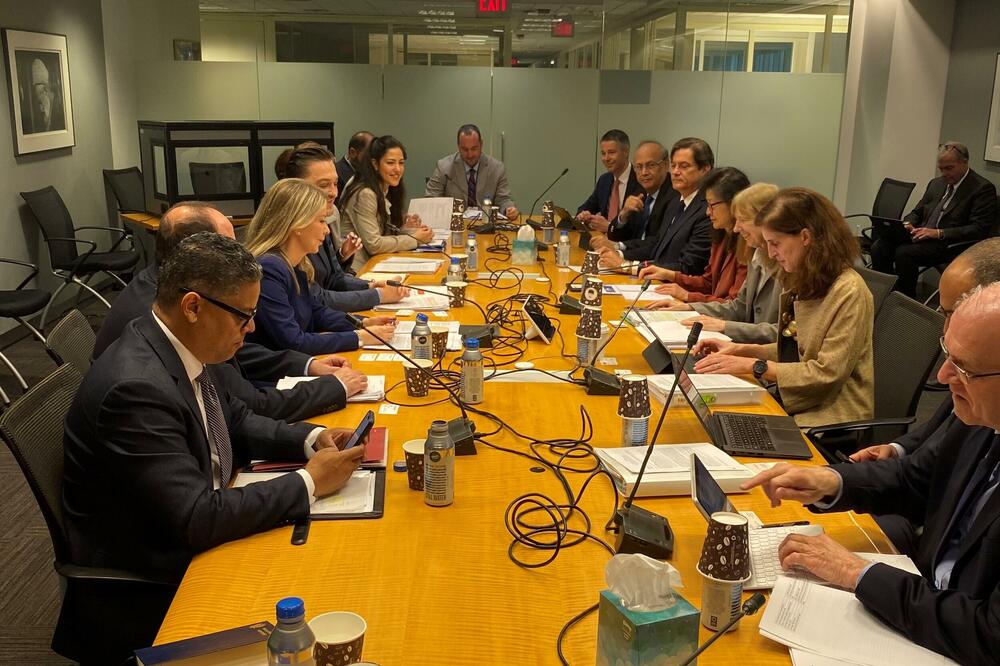The banking sector represents the most stable and resilient part of the Montenegrin economy and is characterized by positive trends in all key indicators, said the Governor of the Central Bank of Montenegro, Irena Radović, who, together with the Minister of Finance, Novic Vuković, leads the Montenegrin delegation participating in the Spring Meetings of the International Monetary Fund and the World Bank in Washington, it was reported from the Ministry of Finance.
During the Spring Meetings, the Montenegrin delegation met with high officials of the World Bank - Antonela Basani, Vice President for Europe and Central Asia, Eugen Rugenat, Executive Director and Christopher Sheldon, Head of the Office for Montenegro and Bosnia and Herzegovina, the announcement states.
As stated, Minister Vuković said that the Government's priority is the improvement of economic policies aimed at improving the living standards of citizens of Montenegro, along with dynamic infrastructure development and the implementation of a wide range of reform measures and laws. In this context, Minister Vuković expressed satisfaction with the future signing of the Partnership Framework for Cooperation between Montenegro and the World Bank, which defines the most important development projects of Montenegro.
Governor Radović expressed her gratitude for the continuous support provided by the World Bank to the CBCG, and especially for the implementation of the project "Modernization of Western Balkan Payment Systems", which aims to support Montenegro and other countries in the region in their efforts to become part of the single euro payment area ( SEPA), it is emphasized in the announcement of the Ministry of Finance. "With your support, the CBCG is working intensively in two fields - harmonizing the regulatory framework with EU directives and modernizing payment systems, in order to meet the requirements for joining SEPA as soon as possible," said Governor Radović.
According to reports, Vice President Basani expressed the willingness of the World Bank to continue supporting Montenegro in this process. The representatives of the World Bank and CBCG agreed that the future cooperation of these two institutions should be focused on projects of greening the financial sector and climate change management.
The announcement also states that the Minister of Finance met with the team in Washington with Akihiko Nishija, Vice President for Development Financing and IDA Funds (IDA-International Development Association), who expressed his satisfaction with Montenegro's membership and donor status in the largest global fund. which works to reduce poverty by providing low-interest loans and grants for programs that stimulate economic growth, reduce inequalities and improve people's living conditions. Namely, Montenegro made the payment of the first, out of a total of 3 installments of the donation to this international association, in the amount of 330 thousand US dollars. At the meeting, it was also agreed that our country appoints a permanent representative in IDA, which will significantly strengthen the partnership.
The Montenegrin delegation also attended the meeting of the Belgian-Dutch Constituency, which was chaired by the Minister of Finance of the Netherlands, Steven van Wejenberg. It was reported from this meeting that the global economy is facing challenges related to inflation, high levels of debt, inequality, geopolitical tensions and climate change. In order to overcome these challenges and improve the prospects for long-term growth and productivity, additional efforts are needed in the form of more decisive implementation of structural reforms and increased investment in (digital) infrastructure and research and development, it was concluded at the meeting of the Constituent Assembly, the statement concludes.
Bonus video:




